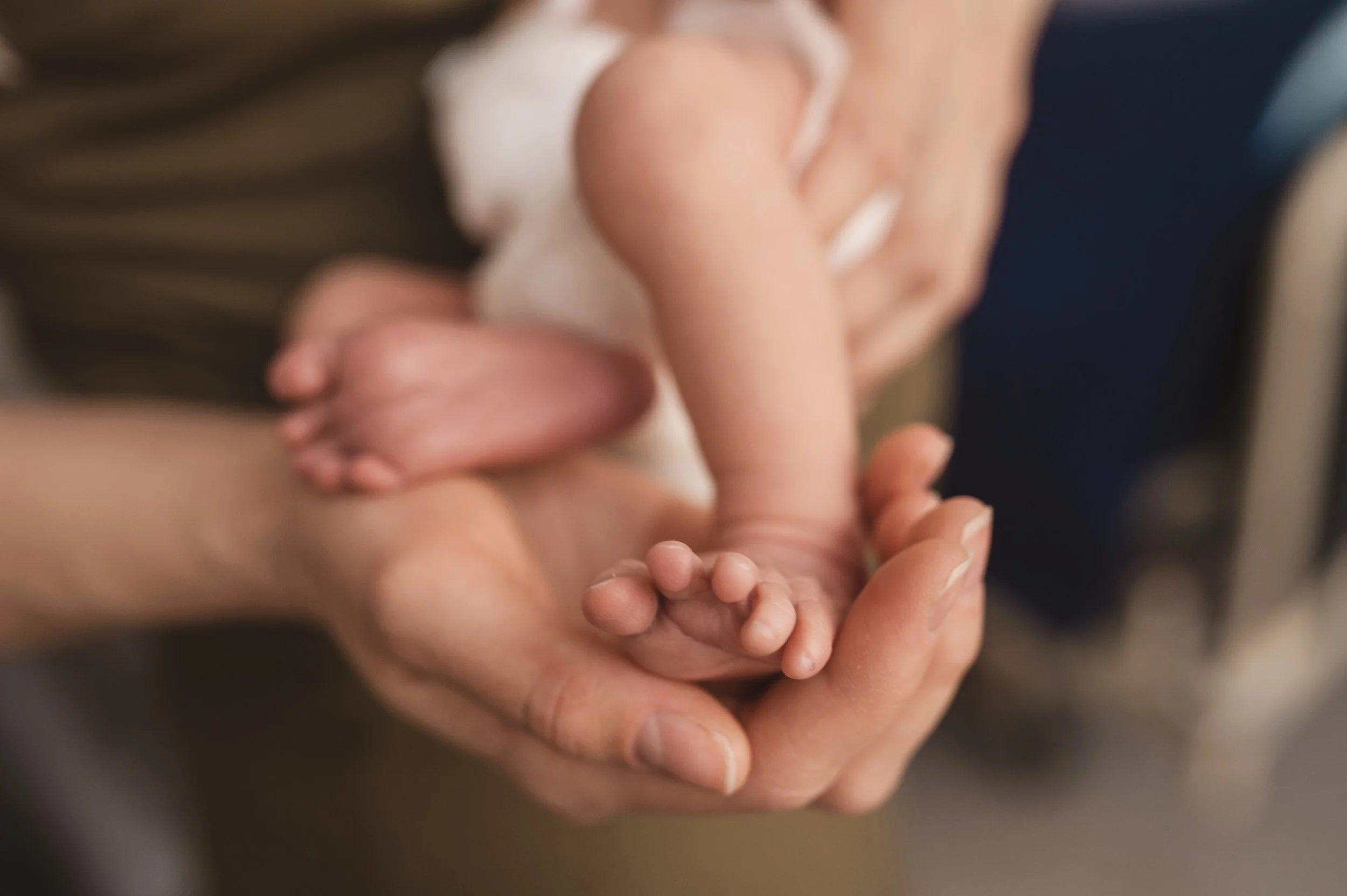Can Cranial Osteopathy help babies with Colic & Reflux?
If you’ve ever found yourself doing the 3am baby shuffle, you know, that half-dance, half-plea for sleep while bouncing a wide-awake newborn on your shoulder - then first of all, solidarity. Parenting in those early months can be beautiful, magical and heart-filling… but also exhausting, confusing, and sometimes a bit lonely.
One of the biggest shocks new parents often share with me is that babies don’t always arrive in this world serene and sleepy. Sometimes, they come out with tension in their tiny bodies, unsettled digestion, and a strong preference for turning their head one way which can lead to flattening. That’s where cranial osteopathy can come in.
So, what is cranial osteopathy for babies?
Despite the slightly mystical name, it isn’t about strange head manipulations or anything dramatic. Cranial osteopathy for babies is a gentle, hands-on approach that focuses on easing tension and restoring balance in the body. The techniques are so light that many parents wonder if I’m “doing anything at all” - usually right before their baby sighs, wriggles, or conks out mid-treatment.
It’s particularly well-suited for babies because their bodies are soft, adaptable, and still unwinding from the birth process. Whether your birth was straightforward or involved forceps, ventouse, or a long labour, babies can carry physical stresses that show up in all sorts of ways.
Common reasons parents bring their babies to a Cranial Osteopath
• Colic and reflux – If your baby seems uncomfortable after feeds, arches their back, or spends more time crying than sleeping, cranial osteopathy can sometimes help by easing restrictions around the diaphragm, ribcage and digestive system.
• Feeding difficulties – Babies with tension in their jaw, neck, or shoulders may struggle to latch or feed comfortably. Gentle release work can support better movement and coordination.
• Head shape concerns (plagiocephaly or flat spots) – Babies often develop flat areas if they favour turning their head one way. Osteopathy works alongside repositioning and tummy time to encourage freer neck movement.
• General unsettledness – Sometimes parents just say, “My baby doesn’t seem comfortable” Osteopathy can help bring their system into more balance, which in turn helps them (and you) find more calm.
Parents notice the little shifts
It’s the everyday victories that feel life-changing:
• “He finally did a proper burp without crying.”
• “She actually slept in her cot for the first time.”
• “We’re still up at night, but it’s once or twice, not every hour.”
And what about the parents?
While my focus is often the baby on the treatment table, I’m also keeping an eye on the parent sitting in the chair. You’ve just grown, birthed, and are now sustaining a human being - your body and nervous system deserve some kindness too. I often encourage postnatal mums to come in for a check themselves, because your recovery plays a huge part in how you experience these first months.
When to seek support
Osteopathy is not a replacement for medical care. If you’re ever worried about your baby’s health, always check in with your GP, midwife, or health visitor first. But if your baby is medically well yet struggling with the “everyday hurdles” - colic, sleep, feeding, or tension - cranial osteopathy can be a safe, supportive option to explore.
A final word (and a pep talk)
If you’re a new parent reading this at 2am with one hand scrolling and the other patting a tiny back, please know this: you’re not alone, you’re not doing anything wrong, and your baby isn’t broken. They’re just adjusting to life outside the womb - and sometimes they need a little extra help to settle into their bodies.
And if cranial osteopathy can give you both a few more hours of rest, a calmer feed, or just a moment of exhale… then that’s worth its weight in gold.
📍 Carla Pozner Osteopathy, The Portland Hospital, London. Specialising in mums, babies, and children.


